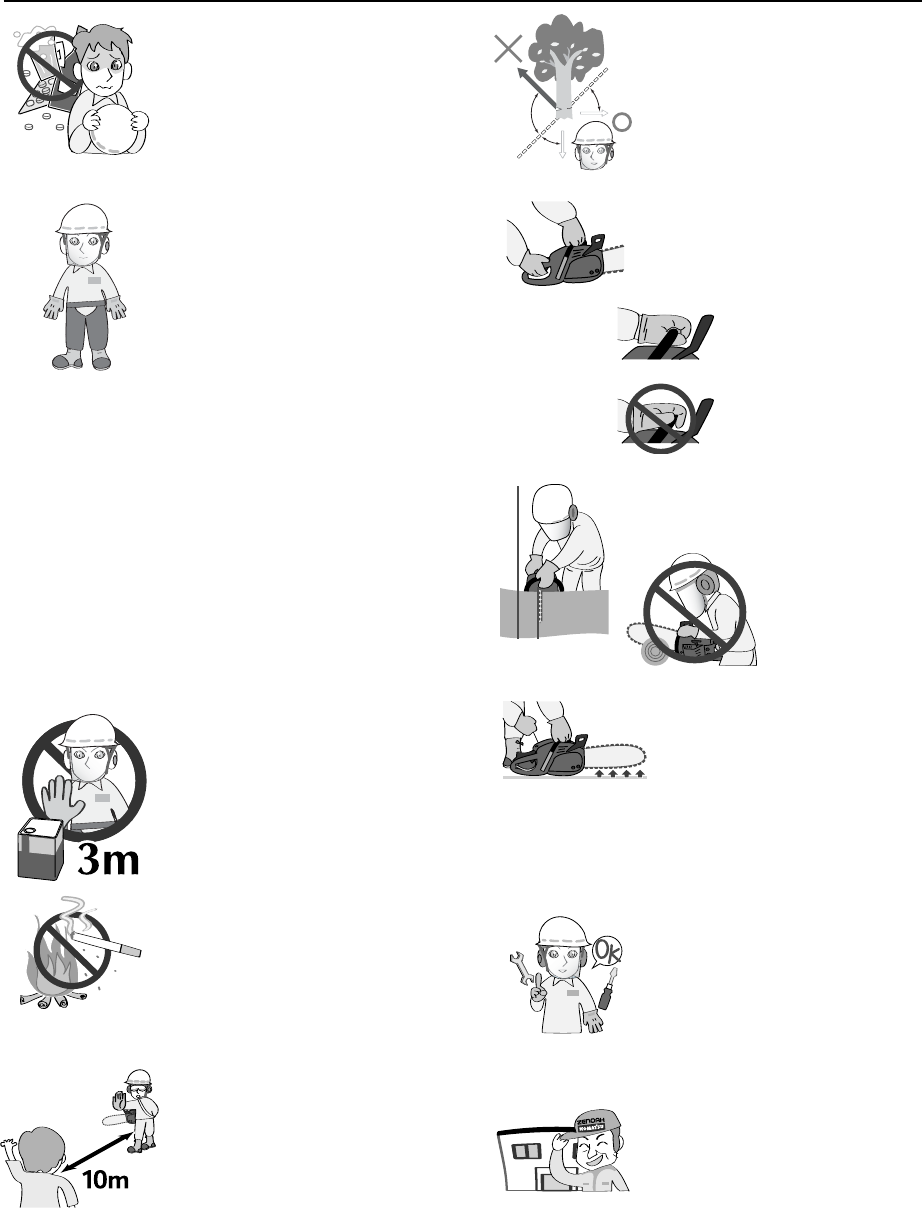
G3800
1. For safe operation
1. Never operate a chain saw when
you are fatigued, ill, or upset, or
under the influence of medica-
tion that may make you drowsy,
or if you are under the influence
of alcohol or drugs.
2. Use safety footwear, snug fitting
clothing and eye, hearing and
head protection devices.
Use the vibration-proof glove.
3. Keep the saw chain sharp and
the saw, including the AV system,
well maintained. A dull chain will
increase cutting time, and press-
ing a dull chain through wood will
increase the vibrations transmit-
ted to your hands. A saw with
loose components or with dam-
aged or worn AV buffers will also
tend to have higher vibration lev-
els.
4. All the above mentioned precau-
tions do not guarantee that you
will not sustain whitefinger dis-
ease or carpal tunnel syndrome.
Therefore, continual and regular
users should monitor closely the
condition of their hands and fin-
gers.
If any of the above symptoms ap-
pear, seek medical advice imme-
diately.
5. Always use caution when han-
dling fuel. Wipe up all spills and
then move the chain saw at least
3 m from the fueling point before
starting the engine.
6. Eliminate all sources of sparks or
flame (i.e. smoking, open flames,
or work that can cause sparks)
in the areas where fuel is mixed,
poured, or stored.
7. Do not smoke while handling fuel
or while operating the chain saw.
8. Do not allow other persons to be
near the chain saw when start-
ing or cutting. Keep bystanders
and animals out of the work area.
Children, pets and bystanders
should be a minimum of 10 m
away when you start or operate
the chain saw.
9. Never start cutting until you have
a clear work area, secure foot-
ing, and a planned retreat path
from the falling tree.
10. Always hold the chain saw firmly
with both hands when the engine
is running. Use a firm grip with
thumb and fingers encircling the
chain saw handles.
11. Keep all parts of your body away
from the saw chain when the en-
gine is running.
12. Before you start the engine,
make sure the saw chain is not
contacting anything.
13. Always carry the chain saw with
the engine stopped, the guide
bar and saw chain to the rear,
and the muffler away from your
body.
14. Always inspect the chain saw be-
fore each use for worn, Ioose, or
damaged parts. Never operate
a chain saw that is damaged, im-
properly adjusted, or is not com-
pletely and securely assembled.
Be sure that the saw chain stops
moving when the throttle control
trigger is released.
15. All chain saw service, other than
the items listed in the Owner’s
Manual, should be performed by
competent chain saw service
personnel. (E.g., if improper tools
are used to remove the flywheel,
or if an improper tool is used to
hold the flywheel in order to re-
move the clutch, structural dam-
GB-4

















